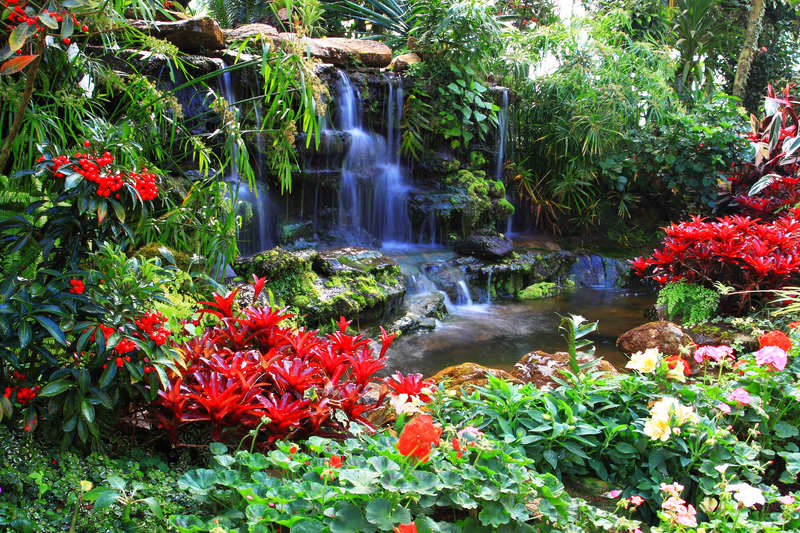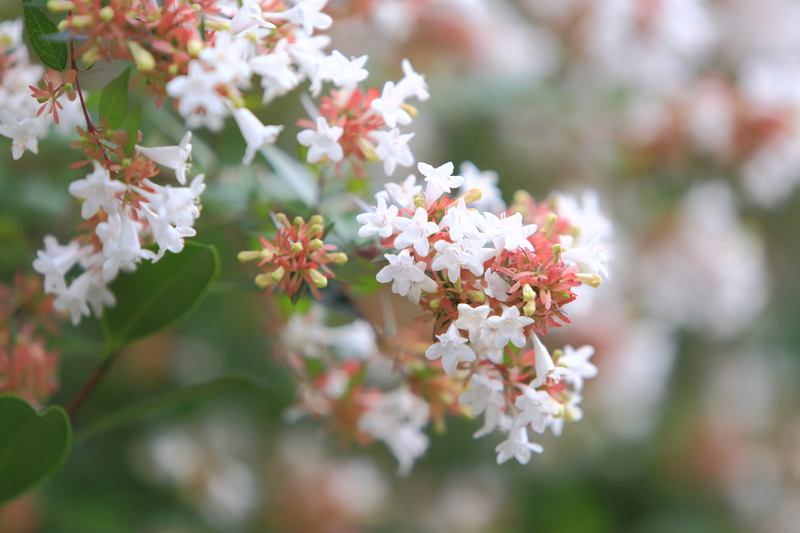Starting Your Garden Journey: 9 Essential Tips for Beginners
Posted on 28/06/2025
Starting Your Garden Journey: 9 Essential Tips for Beginners
If you've ever admired lush, green gardens or the bounty of homegrown vegetables, now is the perfect time to start your own garden journey. Whether your goal is to grow vibrant flowers or fresh produce, beginning the gardening process may seem daunting at first. But with the right guidance, even novices can transform a bare patch of land or a selection of containers into an oasis of growth and color. This complete guide provides 9 essential tips for beginners to help you grow and maintain a thriving garden, from your very first seed to your initial harvest.
1. Choose the Perfect Location for Your Garden
One of the most crucial steps when starting your gardening adventure is selecting the ideal spot. The success of your plants depends heavily on light, soil, and access to water.
- Observe Light Patterns: Most edible and ornamental plants need at least 6-8 hours of direct sunlight daily. Watch how the sunlight moves through your backyard or balcony to determine the best site.
- Accessibility: Place your garden where it's easy to water and access for routine maintenance. Being able to conveniently reach your plants increases the likelihood you'll keep up with weeding and harvesting.
- Protection: Consider windbreaks or barriers if your area is prone to strong winds, which can damage delicate seedlings and plants.
Taking time to properly plan your garden's location is the foundation for a flourishing future.

2. Understand Your Soil
Soil is the lifeblood of your garden. Knowing your soil type and quality will allow you to nourish your plants properly and maximize their growth potential.
- Soil Testing: Purchase an inexpensive soil testing kit to check pH and nutrients. Most vegetables prefer a slightly acidic to neutral pH (about 6.0-7.0).
- Edit and Amend: If your soil is heavy clay or sandy, enrich it with compost or organic matter to improve its structure and fertility.
- Drainage: Test for drainage by digging a hole, filling it with water, and observing how long it takes to drain. Poor drainage can lead to root rot and other plant diseases.
Tip: Don't underestimate the value of healthy garden soil--it fuels all growth and ensures your beginner gardening efforts will pay off.
3. Start Small and Simple
It's easy to get ambitious, but new gardeners often benefit from beginning with a manageable plan. Starting small helps you learn, prevents overwhelm, and is less expensive.
Why Less Is More for Beginners
- Plot Size: A 4'x4' raised bed, a handful of large pots, or a 6-plant herb garden is ideal for new gardeners.
- Plant Varieties: Choose 3-6 types of easy-to-grow plants rather than dozens. Popular starter choices include tomatoes, basil, lettuce, marigolds, and sunflowers.
- Expand Gradually: As you gain confidence and experience, add more plants and perhaps experiment with new varieties.
Consistency and observation will teach you more than any book or video. Keeping your garden simple at first fills you with confidence for future growth.
4. Select the Right Plants for Your Region and Season
Not all plants thrive in every environment. When kicking off your gardening journey, it's best to select plants well-suited to your local climate, USDA zone, and current season.
- Read Plant Labels or Seed Packets: These indicate preferred growing conditions, required sunlight, and sowing times.
- Consult Local Experts: Garden centers and local extension offices can suggest plants known to do well in your region.
- Seasonal Choices: Start with cool-season plants (like lettuce and peas) in early spring and save warm-season varieties (tomatoes, peppers) for late spring or summer.
Pro tip: Native plants are often easier for beginner gardeners since they're already adapted to your environment!
5. Invest in Basic Gardening Tools
No need to break the bank when gathering your first gardening toolkit. *A few essential items will make your gardening tasks far easier and more enjoyable.*
- Hand Trowel and Transplanter: These help in planting, weeding, and moving soil.
- Pruning Shears: Essential for trimming stems, harvesting, or deadheading flowers.
- Watering Can or Hose: Depending on your plot size, ensure thorough yet gentle watering.
- Gardening Gloves: Protect your hands from thorns, splinters, and dirt.
- Rake and Hoe: Useful for soil preparation and removing larger weeds or debris.
Quality pays off--buying decent garden tools will save you frustration and expense in the long run!
6. Learn Watering Best Practices
Proper watering is vital for plant health, as both overwatering and underwatering can lead to plant stress or failure.
- Consistency: Water in the morning when possible, allowing leaves to dry before evening and minimizing disease risks.
- Soil Moisture: Most plants prefer even, deep watering rather than light, frequent sprinkles.
- Check Soil: Before watering, stick your finger an inch into the soil. If it feels dry, it's time to water.
- Mulch: Adding organic mulch helps soil retain moisture and reduces watering needs.
Remember: *Plants often show stress from improper watering through wilting, yellowing, or drooping leaves.* Match your watering practices to your garden's specific conditions.
7. Feed Your Growing Plants
For your garden to thrive, you may need to provide additional nutrients beyond what is naturally present in the soil, especially for fruiting vegetables and blooming flowers.
- Compost: Add well-rotted compost to enrich your soil structure and feed your plants naturally.
- Organic Fertilizers: Fish emulsion, worm castings, aged manure, and specialty blends are beginner-friendly and help plants flourish.
- Follow Instructions: More isn't always better! Over-fertilizing can burn roots or cause excessive leaf growth with fewer flowers or fruits.
Healthy, well-fed plants resist pests and diseases much better, setting you up for gardening success.
8. Practice Routine Maintenance and Pest Control
Regular attention is key to your gardening journey. Preventing problems early is easier than correcting them once they arise.
- Weed Regularly: Remove weeds at least once a week before they spread seeds, as weeds compete for nutrients and water.
- Monitor for Pests: Check plants frequently for signs of insects or disease. Hand-pick pests, use insecticidal soap, or introduce beneficial insects as needed.
- Prune & Deadhead: Removing dead flowers encourages new blooms, while pruning keeps plants healthy and well-shaped.
- Mulch: In addition to conserving water, mulch suppresses weed growth and regulates soil temperature.
Observing your plants closely helps build your gardening instincts. Record what works and what doesn't so you can adjust your approach next season.
9. Be Patient and Have Fun!
One of the biggest challenges new gardeners face is impatience. Plants take time to sprout, grow, and thrive. Nature doesn't operate on a fast-forward schedule, so learn to savor the process.
- Celebrate Small Wins: Whether it's your first sprout, flower, or fruit, every success is a step forward in your gardening journey.
- Embrace Mistakes: Gardening is a continual learning experience. Not every plant will thrive, and that's completely normal--use it as motivation to improve and try again.
- Connect with Others: Join local or online gardening groups to share experiences, ask questions, and gain support.
Enjoy the beauty, relaxation, and sense of accomplishment that gardening brings. The journey itself is the reward!
Bonus Tip: Keep a Garden Journal
Starting a simple garden journal--either on paper or digitally--allows you to track plant varieties, planting dates, growth trends, weather patterns, and successful techniques. Recording your observations is invaluable in growing your skills each season.

Frequently Asked Questions About Starting Your Garden Journey
- Q: What are the best plants for absolute beginners?
A: Start with easy favorites like lettuce, radishes, sunflowers, basil, and marigolds. These are hardy and forgiving for beginner gardeners. - Q: Do I need to start from seeds or can I buy plants?
A: Both options are great! Seeds are cost-effective, but starter plants give instant results and are easier for beginners. - Q: How much time do I need to maintain a small garden?
A: About 15-30 minutes a few times per week is enough for watering, weeding, and observation.
Conclusion: Begin Your Gardening Adventure Today!
Launching your own garden can be a deeply satisfying experience--one that promotes sustainability, health, and personal fulfillment. By following these 9 essential gardening tips for beginners, you start your garden journey equipped with the knowledge and confidence to nurture living things and enjoy the fruits (and flowers) of your labor. Remember: every master gardener once started with a single plant and a patch of earth. With patience, curiosity, and a willingness to learn, you'll soon discover that gardening is not just a hobby--but a way of life.
Ready to dig in? Gather your seeds, tools, and enthusiasm--your garden journey starts now!
Latest Posts
How Gardening Innovations Can Mitigate Climate Change Impact
Weather-Resilient Gardens: Protecting Your Plants and Crops
Unleash the Potential of Your Garden with Creative Seating Tips

